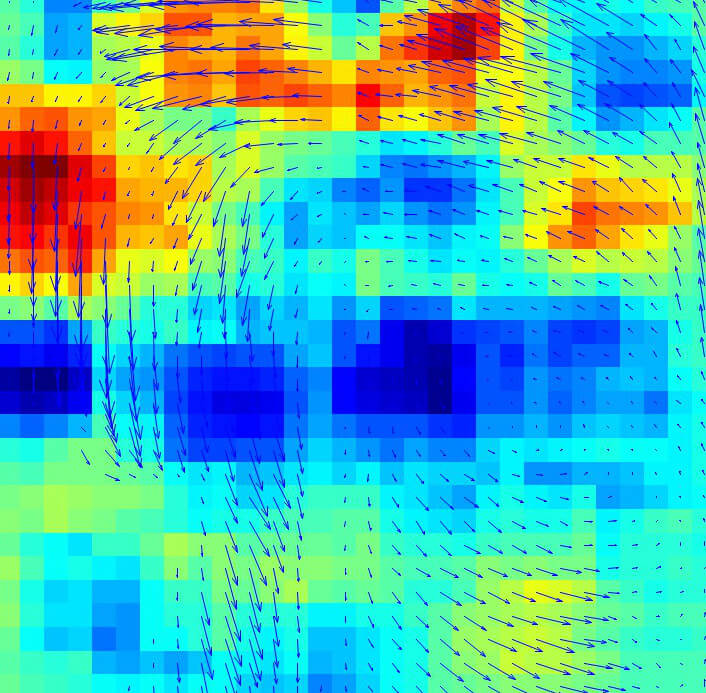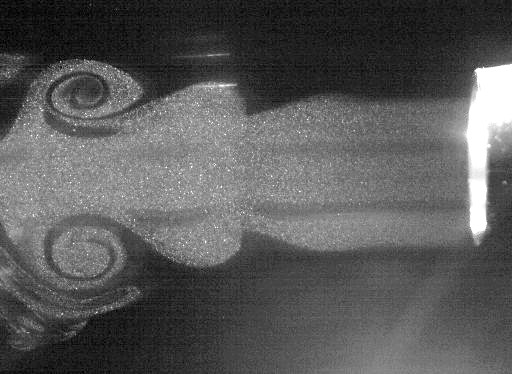You want to measure the velocimetry of a fluid flow with the technique of particle image velocimetry (PIV). PIV allows you to perform non-intrusive fluid flow velocity measurements. For this reason, vector analysis is a very powerful technique for making flow velocity measurements in air or water or for measuring the velocity of droplets or particles of a spray spray using the PIV software: ViDPIV. In addition, the same equipment can be used for flow observation and particle tracking velocimetry (PTV). Particle Imaging Velocity is also able to measure stress and strain within solid systems.

Accurate planar flux measurement
The technique is based on a planar beam of light - a sheet of light - most often from a laser. The sheet of laser light illuminates the particles entrained in the flow. Two images are then captured using a high speed digital camera. The PIV software calculates how the particles flowing between the two images move and a speed map is then generated.
Advanced but simple technique
Particle image velocimetry has been developed to such an extent that it is now a technique commonly used in many industrial or research sectors where instantaneous velocity vector maps are required. Oxford Lasers VisiVector systems are designed to be easy to set up and use. VidPIV, our PIV software features an intuitive interface that lets you quickly see how measurements are calculated and allows complex analysis to be performed with ease.
A wide range of systems
PIV systems are used for flow velocity measurements in liquid or gaseous state. Oxford Lasers supplies conventional 2D PIV, stereo PIV, micro PIV and high speed systems. We also offer system components such as stand-alone, high repetition rate dual pulse lasers, timing units, optics, cameras and PIV software.

Applications
PIV has applications in a wide range of fields of engineering and fluid dynamics:
- Research and Development in Aerodynamics
- aerospace engineering
- automotive engineering and development
- combustion engineering
- fire extinguisher design
